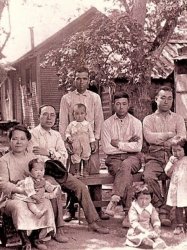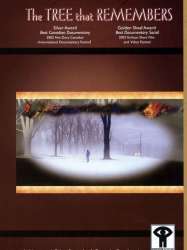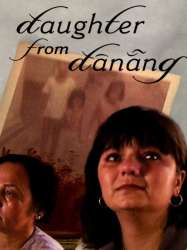Parcours de réfugiés is a marocain film of genre Documentary directed by Ali Benjelloun
Parcours de réfugiés (2009)

If you like this film, let us know!
Parcours de réfugiés is a 2009 documentary film about refugees in Morocco, directed by Ali Benjelloun.
Synopsis
Morocco receives many emigrants whose ultimate destination is Europe. About a thousand of these migrants hold a political refugee card from the United Nations High Commissioner for Refugees Agency (UNHCR). However, even those with this card face challenges.Comments
Leave comment :
Suggestions of similar film to Parcours de réfugiés
There are 0 films with the same director, 8959 with the same cinematographic genres, 3242 films with the same themes (including 52 films with the same 3 themes than Parcours de réfugiés), to have finally 70 suggestions of similar films.If you liked Parcours de réfugiés, you will probably like those similar films :

The List (2012)
, 1h23Directed by Beth Murphy
Origin USA
Genres Thriller, Documentary
Themes Films about immigration, Documentary films about law, Documentary films about war, Documentary films about historical events, Documentaire sur une personnalité, Political films
Rating70%





The List is a modern-day Oskar Schindler story that focuses on Kirk W. Johnson, a young American fighting to save thousands of Iraqis whose lives are in danger because they worked for the U.S. to help rebuild Iraq. After leading reconstruction teams in Baghdad and Fallujah, Kirk returns home only to discover that many of his former Iraqi colleagues are being killed, kidnapped or forced into exile by radical militias. Frustrated by a stagnating government bureaucracy in the U.S. that has failed to protect its 'Iraqi allies,' Kirk begins compiling a list of their names and helps them find refuge and a new life in America.

A Family Gathering (1988)
, 30minutesOrigin USA
Genres Documentary
Themes Films about families, Films about immigration, Prison films, Films about racism, Documentary films about business, Documentary films about the film industry, Documentary films about racism, Documentary films about law, Documentary films about war, Documentary films about historical events, Documentaire sur une personnalité, Political films, Documentary films about World War II, Autobiographical documentary films
Actors Keith Hamilton Cobb
Rating23%






Bolinao 52 (2007)
Genres Documentary
Themes Films about immigration, Documentary films about law, Documentaire sur une personnalité
Rating75%






Molly & Mobarak (2004)
, 1h25Genres Documentary
Themes Films about immigration, Seafaring films, Transport films, Documentary films about law, Documentaire sur une personnalité
Rating11%






Yoole, The Sacrifice (2010)
, 1h15Origin Senegal
Genres Documentary
Themes Films about immigration, Documentary films about law, Documentaire sur une personnalité
The albatross smiled from the sky/ These were the last souls sacrificed to the sea / Years later, their bodies reached the shore. A young illegal immigrant writes to his mother. He tells her of the torments he and his friends endured during weeks after they attacked the great blue. They departed from Senegal towards Spain in an open boat with 54 souls aboard, but the boat started to drift towards the American continent. It reached Barbados with only eleven passengers, all dead.

Yodok Stories (2008)
Genres Documentary
Themes Films about immigration, Documentary films about law, Documentaire sur une personnalité
Rating74%






Nicky's Family (2011)
, 1h36Directed by Matej Mináč
Genres Drama, Documentary
Themes Films about immigration, Films about racism, Films about religion, Documentary films about racism, Documentary films about law, Documentary films about war, Documentary films about historical events, Documentaire sur une personnalité, Documentary films about religion, Political films, Films about Jews and Judaism, Documentary films about World War II
Actors Klara Issova
Rating80%





"La famille de Nicky" est l'histoire extraordinaire de Nicholas Winton, surnommé le Schnindler britannique, qui avant le début de la seconde guerre mondiale, entre mars et août 1939, a sauvé 669 enfants tchèques et slovaques, pour la plupart juifs, du génocide nazi. Le film mêle fiction, documents d'archives inédits, et témoignages émouvants des protagonistes de cette histoire, parmi lesquels Nicholas Winton en personne et Joe Schlesinger, journaliste à la CBC et narrateur du film. La "famille" de Nicholas Winton compte aujourd'hui plus de 5 000 personnes dans le monde entier, qui lui doivent la vie.

The Tree That Remembers (2002)
, 50minutesOrigin Canada
Genres Documentary
Themes Films about immigration, Documentary films about law, Documentary films about historical events, Documentaire sur une personnalité
Rating74%






Daughter From Danang (2002)
, 1h23Directed by Gail Dolgin
Origin USA
Genres Documentary, Historical
Themes Films about families, Films about immigration, Documentary films about law, Documentary films about war, Documentary films about historical events, Documentaire sur une personnalité, Political films
Rating74%





Heidi's mother, Mai Thi Kim, already had three children and was estranged from her husband Do Huu Vinh, who had left her to fight with the Viet Cong. She was working at an American military base where she met Heidi's father, an American serviceman. When the North Vietnamese army came closer to Danang, Mai Thi Kim feared for Heidi's safety due to rumors of retaliation against mixed-race children. At the age of six, Heidi was sent to United States and placed in an orphanage run by the Holt Adoption Agency.
 Connection
Connection